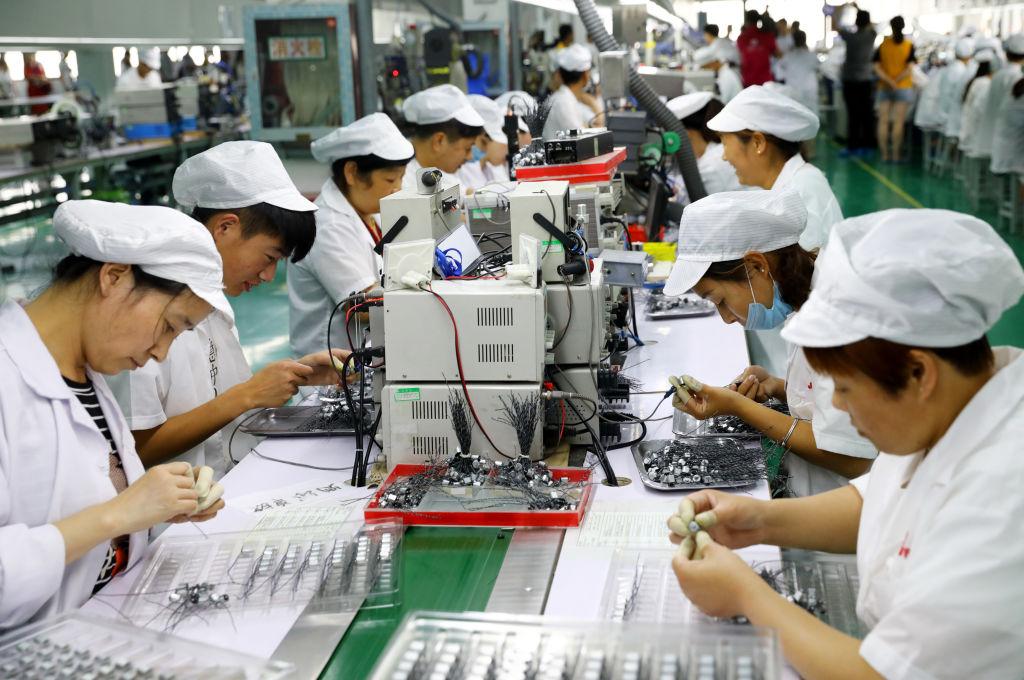China’s job market has been devastated by the Sino-U.S. trade war, and the outlook for 2019 isn’t looking very positive.
Berlin-based think tank Mercator Institute for China Studies, published a report Jan. 10 projecting that if the trade dispute can’t be settled, China’s export sector could “take an immediate hit, leading to mass layoffs of workers.”
This is compounded by the fact that the Chinese economy is already struggling, which means rising unemployment could fuel social unrest, the report warned.
In the last month of 2018, China’s manufacturing purchasing managers’ index (PMI) dropped to 49.4, the weakest reading since February 2016, according to Reuters. A PMI dipping below 50 signals economic contraction.
China’s job market in 2018 was already doing poorly. Overall employment dropped by about 2.8 million people in the 12 months ending in November 2018, CNBC reported, citing a Jan. 9 survey of 374,000 large industrial firms conducted by Hong Kong financial services company Gavekal Dragonomics.
In an attempt to address the problem, 20 Chinese provinces have introduced measures to boost employment, in response to a call by China’s cabinet-like State Council in December 2018 to “prioritize stable employment and job creation.”
Among the measures is to provide the unemployed with government-subsidized training in vocational skills, according to a Jan. 7 article by China’s state-run newspaper Global Times.
Many Chinese media have predicted that the 2019 job market will be the “worst-ever employment season,” according to the Global Times.
Confidence in the Chinese economy is also at an unprecedented low level. Out of 465 Chinese individuals whose personal assets were valued at 10 million yuan or more (about $1.47 million) during the past six months, 34 percent stated that they were “very confident” about the Chinese economy, according to a survey by Chinese business magazine Hurun Report published on Jan. 16. That’s a 14 percent drop from a year earlier—and the lowest level since 2010.
Meanwhile, the percentage of respondents saying they had no confidence at all rose to 14 percent, an increase of 8 percent from a year prior, and the highest level since 2010.
One reason for China’s poor job market is that foreign companies have been moving their production away from China—some because of the trade war, while others for economic reasons.
Apple assembler Foxconn let go of about 50,000 contract workers since October last year at the company’s iPhone assembling factory at Zhengzhou City, the capital of China’s Henan Province, according to a Jan. 18 report by Japanese media Nikkei. Unidentified sources told Nikkei that the scale of the workforce reduction was similar to previous years, but it was significant that the cuts happened much earlier than usual for the contract workers.
Another Apple assembler, Pegatron, stopped renewing monthly labor contracts for Chinese workers beginning in November last year, according to Nikkei.
In early January, Nikkei reported that Apple had reduced planned production for its three new iPhone models—XR, XS, and XS Max—by 10 percent for the January-March quarter, because of slowing demand in China, the world’s largest smartphone market.
In December 2018, Samsung closed its joint-venture smartphone production facility in Tianjin City, after more than 20 years in operation, due to sluggish sales in China, according to China’s business media Caixin. The closing of the facility, which was a joint venture with a Chinese company backed by the Tianjin government, affected more than 2,000 workers.





